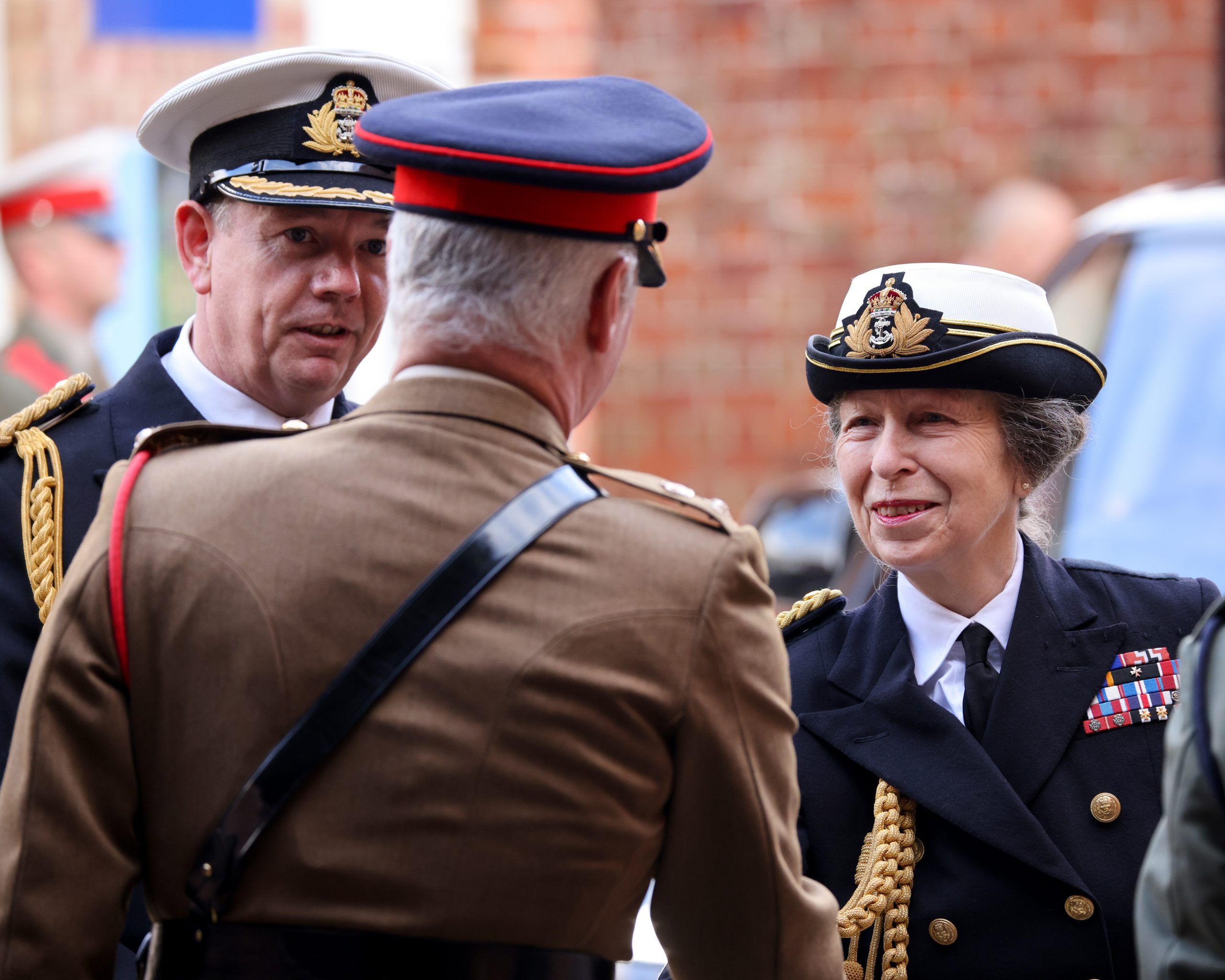
© Crown copyright 2013
Her Royal Highness The Princess Royal visited His Majesty’s Naval Base Portsmouth, the home of the Royal Navy, to meet with members of the Royal Marines Band Service and the Corps of Army Music, and officially open the brand new training facility.
The Alford Schools of Military Music, named after the ‘British March King’ Kenneth Alford, who served with distinction in both the Royal Marines and British Army, is a new facility that combines training and rehearsal space for both the Royal Marines Band and the Corps of Army Music. The building has been used by the band services since 1991 but was originally built as Military Detention Quarters in 1843 – the basis for the new design.
Her Royal Highness, who is Commodore-In-Chief of HMNB Portsmouth, spent the morning at the new facility. She arrived to a performance from the Royal Marines Band and was greeted by His Majesty’s Lord-Lieutenant of Hampshire, Mr Nigel Atkinson, Naval Base Commander of HMNB Portsmouth, Commodore John Voyce OBE ADC, and Officers from both the Royal Marines Band and the Corps of Army Music.
After a tour of the school’s many buildings and other performances throughout the morning, HRH The Princess Royal took the time to speak with trainees from both services about the new facility and their training.
Musician Alex Wallace, a clarinettist and pianist from the Royal Marines Band Service, said: “I was very nervous to meet [HRH] at first, but she’s very supportive of military music and it’s been an honour to play for her today and very interesting to chat to her about my experience in training with the band service so far.”
Principal Director of Music (Army), Lieutenant Colonel Craig Hallatt said: “Today has been a huge privilege for both schools of music in a combined space. It’s an honour to be visited by such a senior member of the Royal Family, who is genuinely interested in the development of military music.”
The prison cell blocks are now used as individual and small ensemble practice rooms and are fitted with acoustic panelling sound proofing to create an ideal area for the musicians. During the refurbishment a stash of contraband was found concealed behind the window of one cell, including cigarettes, books and metal polish.
Graffiti dating back to 1864 was also uncovered, along with the name of a sailor from HMS Warrior scratched into the brickwork. These discoveries will be exhibited behind a clear screen to protect and preserve the heritage.
The school can host up to 100 musicians at a time and currently has an approximate split of 60% Royal Marines and 40% Army Personnel.
